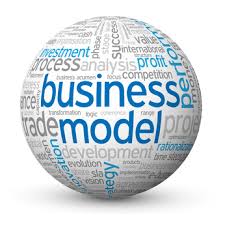At one level, a business model answers the question: “How will the business make money?” Beyond that it is also an idea, process, strategy and an insight that results in value creation for the customers and profits for the enterprise.
IBM, HP, Compaq and others were selling personal and business computers before Michael Dell thought of a new idea while sitting in his dorm room. He reasoned that costs could be reduced by selling directly to the customer and eliminating middlemen like Best Buy. The customer would pay at the time of ordering the computer. This money would be used to finance the inventory. By ordering the exact inventory required, the risk of obsolescence would be reduced. The resulting lower costs could then be passed on to the customer, which would lead to higher sales. This, in a nutshell, was Dell’s business model – new, clean, efficient and elegant.
What was Starbuck’s initial business model? It started off selling upscale coffee beans then pivoted to delivering an experience. It was a high quality, highly customized iteration of coffee and milk in a friendly environment. That is why Howard Schultz coined it “a third space” away from home and work. This allowed them to charge $4 for a product where the ingredient cost of coffee, milk and a paper cup added up to about $0.60.
Without the aid of any business books, The Grateful Dead developed a very successful business model in the 1960s and became one of the top grossing bands without ever having a number one hit. Since they did not like working with the record labels, they concentrated on doing live concerts where they encouraged people to record their music for free. They made their money from selling concert tickets, clothing and other paraphernalia to their intensely devoted following of Deadheads.
The profit component is an important part of the business model. Without profits, a business cannot survive for long; the law of financial gravity inevitably reasserts itself. New business models put pressure and sometimes obsolete even seemingly strong businesses.
Newspapers are a current example of such obsolescence underway.“Newspapers with declining circulations can complain all they want about their readers and even say they have no taste. But you will still go out of business over time. A newspaper is not a public trust – it has a business model that either works or it doesn’t.” – Marc Andreessen
The financial purpose of any business is to make money. You sell a product or service for a certain price, which creates Revenues. You incur Costs to generate these revenues. The difference between the two is Profit.
Revenue – Costs = Profit
This is the fundamental equation of a business. Making a profit is a necessary condition for a business to survive. Yes, there are a few details involved, but this is the basis of profitability.
A business model helps us examine and understand the key elements of the financial equation: how the revenues will be generated, what it will cost to provide the service, what support (overhead) structure will be required and how much capital will be needed to start the business. The goal is to both understand these factors and to find ways to improve the model.
We will discuss all this in greater detail in my subsequent posts. Till then, think about what your business model will be.
Verinder Syal, Author: Discover The Entrepreneur Within


